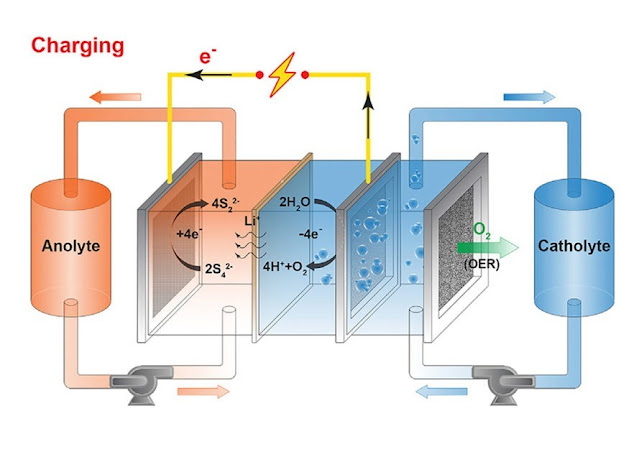Pharmaceutical Traceability Market Set to Register Driven by Increased Focus on Supply Chain Efficiency
 |
| Pharmaceutical Traceability Market |
The
pharmaceutical traceability market deals with solutions that enable
serialization and tracking of pharmaceutical products throughout the supply
chain. Pharmaceutical products are serialized to ensure authenticity and
traceability. Key solutions in the market include barcode labels, RFID labels,
printing & marking solutions, monitoring & verification solutions.
These solutions enable efficient tracking of products from manufacturing to
wholesalers, pharmacies, and hospitals. Deploying traceability solutions helps
combat counterfeit drugs, recalls due to adulteration or errors, theft &
diversion, and comply with regulations.
The
global pharmaceutical traceability market is estimated to be valued at US$ 4.96
billion in 2024 and is expected to exhibit a CAGR of 9.5% over the forecast
period 2024 to 2030.
Key Takeaways
Key players operating in the Pharmaceutical
Traceability Market Size are M&R Printing Equipment, MHM
Siebdruckmaschinen GmbH, Lawson Screen & Digital Products, Sakurai USA, SPS
TechnoScreen GmbH, ATMA Champ Ent. Corp., Systematic Automation, DECO
TECHnology Group, TOSH (Italy), Thieme GmbH & Co. KG. With the rising
demand for serialization and supply chain transparency, manufacturers are
increasingly investing in traceability solutions. Technological advancements
like use of artificial intelligence, blockchains, and IoT are enhancing the
capabilities of traceability systems.
Growing demand for supply chain efficiency and visibility is a key driver for
the pharmaceutical traceability market. With regulations mandating
serialization in many countries, manufacturers are compelled to deploy
traceability systems. Blockchain technology is enabling more transparent and
decentralized supply chain data management. IoT-based sensors allow real-time
monitoring of environmental and transportation conditions.
Market Trends
Blockchain for transparency - Major players are developing blockchain-based
traceability platforms to increase supply chain transparency and data access
across stakeholders. Blockchain enables decentralized tracking of product
details and transactions without intermediaries.
Artificial intelligence - AI is enhancing the capabilities of traceability
systems. Deep learning models can read various code types like barcodes, RFID
tags for traceability. Anomaly detection using AI protects supply chains from
counterfeits and errors.
Market Opportunities
Developing markets in Asia and Latin America are emerging revenue generators
for traceability players. As regulations mandate serialization, local players
will require technology transfer and expertise. Cloud-based traceability
platforms as a service offer opportunities with flexible deployment and low
upfront costs. Adoption of serialized e-labels with tamper-evident features
would drive innovations.
Impact of COVID-19 on Pharmaceutical Traceability Market
The COVID-19 pandemic has significantly impacted the pharmaceutical
traceability market. During the initial months of the outbreak, there was a
widespread disruption in the supply chain of pharmaceutical products due to
nationwide lockdowns imposed across several countries. This led to uncertainty
regarding the availability and supply of critical medicines. Moreover, with the
pandemic emphasizing on the need for effective tracking of medical supplies,
governments are increasingly focusing on implementing traceability solutions.
This is expected to drive the adoption of track and trace technologies by
pharmaceutical manufacturers and distributors to ensure accurate monitoring of
drug movement right from the manufacturing stage to the end user.
The demand for serialized packaging and traceability systems surged
significantly post the outbreak to enable real-time visibility and prevent drug
diversion. Pharmaceutical companies are investing heavily in implementing
serialization and aggregation solutions to comply with new regulations and
address supply chain challenges arising due to the pandemic. Furthermore, with
large-scale vaccination drives underway worldwide, there is heightened focus on
temperature monitoring of vaccines and other therapeutics during transportation
using cold chain monitoring solutions. The long-term outlook remains positive,
with the pandemic underscoring the critical importance of pharmaceutical supply
chain visibility and resilience.
North America Accounts for Largest Share in Pharmaceutical Traceability Market
North America dominates the global pharmaceutical traceability market in terms
of value. Stringent regulations introduced by FDA that mandate serialization
and unique identification of pharmaceutical products have prompted
pharmaceutical manufacturers in the US and Canada to invest heavily in track
and trace technologies. Moreover, presence of many leading pharmaceutical and
life sciences companies along with high adoption of advanced technologies
supports market growth. The US market accounts for the major share within the
region.
Asia Pacific Emerging as Fastest Growing Market for Pharmaceutical Traceability
Asia Pacific market for pharmaceutical traceability solutions is growing at the
fastest pace globally. Rapidly developing pharmaceutical manufacturing base in
countries such as China, India and South Korea is driving increased demand for
serialization and traceability technologies. Governments across the region are
introducing new regulations to strengthen the pharmaceutical supply chain and
ensure drug safety, which is positively impacting the market. In addition, low
labor and production costs make the region an attractive manufacturing hub,
thereby necessitating robust traceability measures. The market is anticipated
to attract considerable investments over the coming years with increasing focus
on implementing coordinated track and trace solutions across national
boundaries.
Get more insights on- Pharmaceutical Traceability Market



Comments
Post a Comment